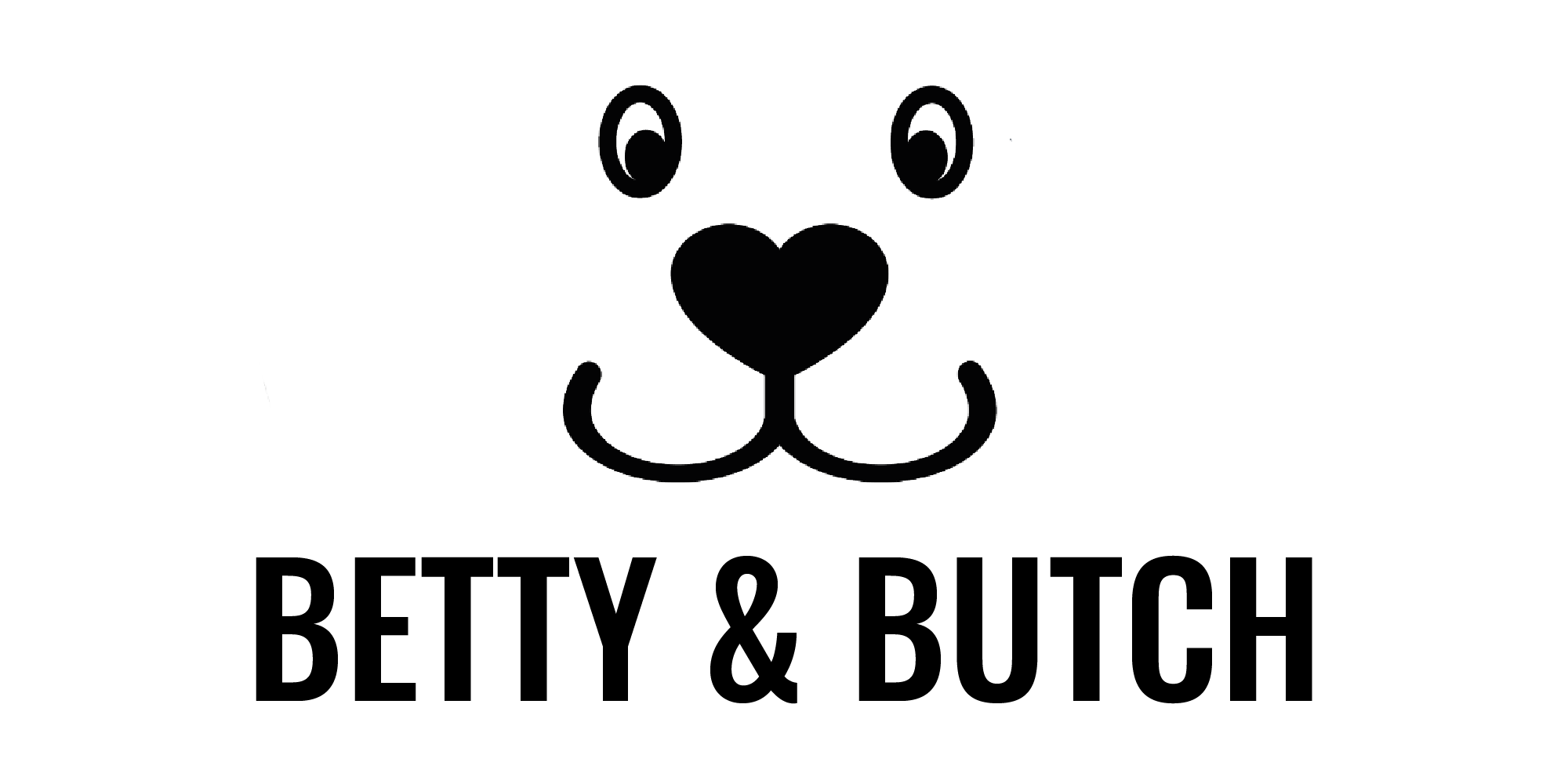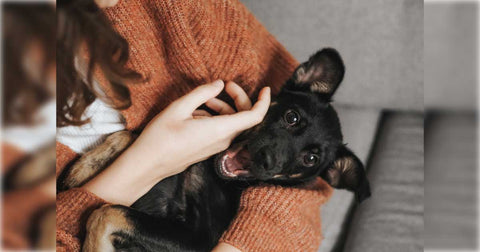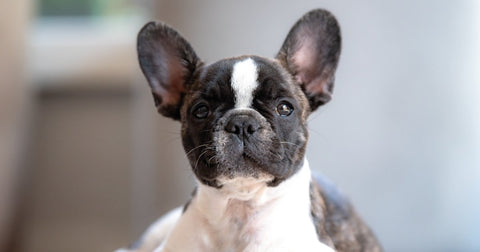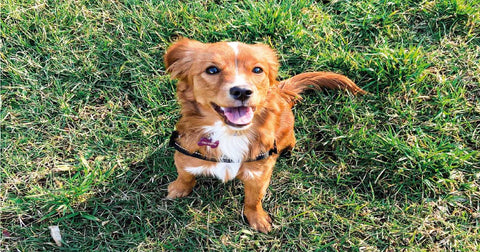You’re playing with your puppy and then all of a sudden - ouch! - they’ve bitten your finger. While biting and mouthing are natural puppy behaviours to help them learn and explore the world around them, a puppy who bites can hurt more than expected.

Teaching your puppy bite inhibition is extremely useful to prevent those hard bites and avoid an adult dog who believes biting people is acceptable in the future.
Why Is It Important?
From 8 weeks old, your puppy will have already started to learn bite inhibition from their mother and siblings. If they bite too hard, their sibling will ‘yelp’, showing that it hurts and the mother will stop playing and turn away from them.

When they move to their forever home, carrying on the teaching of bite inhibition for a puppy who bites, it is extremely important. As your puppy grows, they will get larger and stronger and when they reach adulthood, they will have adult teeth which will do a lot more damage than their baby teeth.
Learning to use their mouth gently is extremely important from a young age for a puppy who bites. There are many tips and tricks you can do to help teach your puppy that you are not their next chew toy.
1. Use Appropriate Toys, Not Your Hands

First thing is first, when playing with your puppy, if you are using your hands or rough playing with them, pushing them over, this will show them that your hands are the toy.
Puppies need to chew so you should already have puppy toys in your home, if not, have a look at our Top Toys for Teething Puppies for excellent puppy chew toys. Your hands should be a caring and gentle thing your puppy sees, used for magical belly rubs, ear rubs and stroking.
2. Avoid Over-excitable Play

Puppies have a lot of playful energy and love to play, but when they are over excited, this is when hard bites happen.
To avoid getting them too excited during playtime, you can limit the amount of play to a maximum of 5 minutes and then let them calm down before you play with them again. This way you stop playing before your puppy gets too excited and bites you.
3. Stop Playing If Hard Bites Continue

If your puppy is continuously biting you when you're playing with them, the best thing to do is to stop playing with them, tuck your hands under your armpits and turn away from them for a moment. You want to teach your puppy that hard bites hurt you and that it’s not acceptable.
When the moment is over, start playing with your puppy again. You should continue this process if they bite you again. This will teach them that hard bites means that the playing stops.
If your puppy carries on, remove yourself from the room. Wait a minute and then return to your puppy and resume playtime.
4. The ‘Leave it’ Command

Another useful technique for a puppy who bites is teaching the ‘leave it’ command through reward based training. Hold some puppy treats in your hand and close your fist. Your puppy will likely try to get the treat, nudging and licking your hand. Give the command and when your puppy stops or moves back, reward them with the treat.
This technique will take a couple of training sessions to master but once your puppy responds to the command every time, it can be used in other areas, especially for a puppy who bites. Check out this page for our top training treats and products.
5. Make Sure All Family Members Know About the Process

One thing which makes the teaching of bite inhibition longer is that not all family members know about the process. All family members should follow the same routine so your puppy knows that if they bite any person, the playing stops.
If not, your puppy won’t learn and it will become very difficult and confusing if your puppy is allowed to bite one family member but not the other.
6. Remember That Bites Will Happen

Accidental bites will happen, it’s how puppies explore their environment especially in the first couple of months. The teaching of bite inhibition is to show your puppy that gentle bites (mouthing) are okay but hard bites are not.
You shouldn’t hold a grudge if your puppy bites you, especially if it was a one-off accident. Never shout because it won’t solve the problem because it will just make your puppy scared of you. Instead, deep breaths and remember that all parts of dog training is a process and hard bites will happen because it won’t change overnight.
When Does Puppy Biting Stop?

With consistency from all family members and through reward based training, a puppy who bites will become a problem of the past. Generally, puppy biting will naturally fade out when they are 8 to 10 months old, when all of their adult teeth have come through.
However, it’s worth remembering that puppies do bite in the early stages because of teething but those hard bites should be directed for their toys only.
If you still are having problems with your puppy biting hard on your hands or people, it might be worth seeking professional help or joining in on puppy training classes.
Got a puppy with hiccups or not sure how to bathe your puppy? Check out these educational blogs on puppy care - How to Help Your puppy with Hiccups and 9 Easy Steps for Bathing a Puppy.




Comments (0)
There are no comments for this article. Be the first one to leave a message!